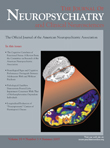Impaired Knowledge for Fruits and Vegetables in Semantic Dementia
SIR: Semantic dementia is a unique frontotemporal lobar degeneration characterized by the loss of meaning or knowledge for words and objects. 1 , 2 The semantic loss in semantic dementia can disproportionately impair the recognition of fruit and vegetables. 3 – 5
Case Report
A 56-year-old woman presented with 2 to 3 years of marked changes in dietary behavior. A committed lifelong vegetarian, she gradually lost the ability to recognize fruits and vegetables, either by sight or taste. She stopped eating them and switched to eating animal products and processed foods. In addition, the patient lost the meaning of the word “vegetarian.”
On examination, the patient had difficulty finding words. Her Mini-Mental State Examination (MMSE) score was 10/30 because of severe word comprehension difficulty. Naming and identification were impaired, particularly for fruits and vegetables. She scored 1/15 on the short-version Boston Naming Test (BNT) and could not define most of the missed items. The rest of her neuropsychological assessment showed surface dyslexia and prosopagnosia. Her general and neurological examinations were normal.
Neuroimaging corroborated the clinical diagnosis of semantic dementia. Magnetic resonance imaging (MRI) showed bilateral anterior temporal lobe atrophy, and a positron emission tomography scan disclosed anterior temporal hypometabolism. The patient was treated with sertraline and citalopram but without impact on her eating behavior.
Case Report
A 54-year-old woman presented with 2 to 3 years of progressive word loss. Her family complained that she had stopped eating fruits and vegetables and could not taste them. Since the patient was unable to recognize produce in the grocery store, her family provided her with pictures of items, such as carrots or apples, so that she could buy fruits and vegetables by matching them with their pictures.
On examination, the patient had difficulty finding words. Her MMSE score was 29/30, and she generated a word list of 10 animals/min but only 4 foods/vegetables a minute. Confrontational naming was impaired, particularly for fruits and vegetables, and she scored 10/60 on the BNT. The patient had difficulty comprehending many of the words. The rest of her neuropsychological assessment showed surface dyslexia and prosopagnosia. Her neurological examination was within normal limits.
Similar to the first patient, her MRI and single photon emission tomography scans showed bitemporal involvement. The patient was managed with sertraline and counseling, without changes in her eating behavior.
Comment
Changes in food preferences in semantic dementia may be due to a loss of semantic knowledge for fruits and vegetables possibly over other foods. Although semantic dementia patients usually have generalized semantic deficits, 2 the loss of knowledge for the specific category of fruits and vegetables can result from brain lesions affecting inferior lateral temporal regions. 4 , 5 A major theory for category specificity in the brain proposes an evolutionary basis for acquired deficits in fruits and vegetables. 2 The rapid and efficient identification of edible fruits and vegetables could have had an advantage for survival and, hence, be “programmed” in the brain. A disproportionate loss of this ability could explain alterations in food preferences in some patients with semantic dementia.
1 . Hodges JR, Patterson K, Oxbury S, et al: Semantic dementia: progressive fluent aphasia with temporal lobe atrophy. Brain 1992; 115:1783–1806Google Scholar
2 . Lambon Ralph MA, Patterson K, Garrard P, et al: Semantic dementia with category specificity: a comparative case-series study. Cog Neuropsychol 2003; 20:307–326Google Scholar
3 . Caramazza A, Mahon BZ: The organization of conceptual knowledge: the evidence from category-specific semantic deficits. Trends Cog Sci 2003; 7:354–361Google Scholar
4 . Samson D, Pillon A: A case of impaired knowledge for fruit and vegetables. Cog Neuropsychol 2003; 20:373–400Google Scholar
5 . Crutch SJ, Warrington EK: The selective impairment of fruit and vegetable knowledge: a multiple processing channels account of fine-grain category specificity. Cog Neuropsychol 2003; 20:355–372Google Scholar



